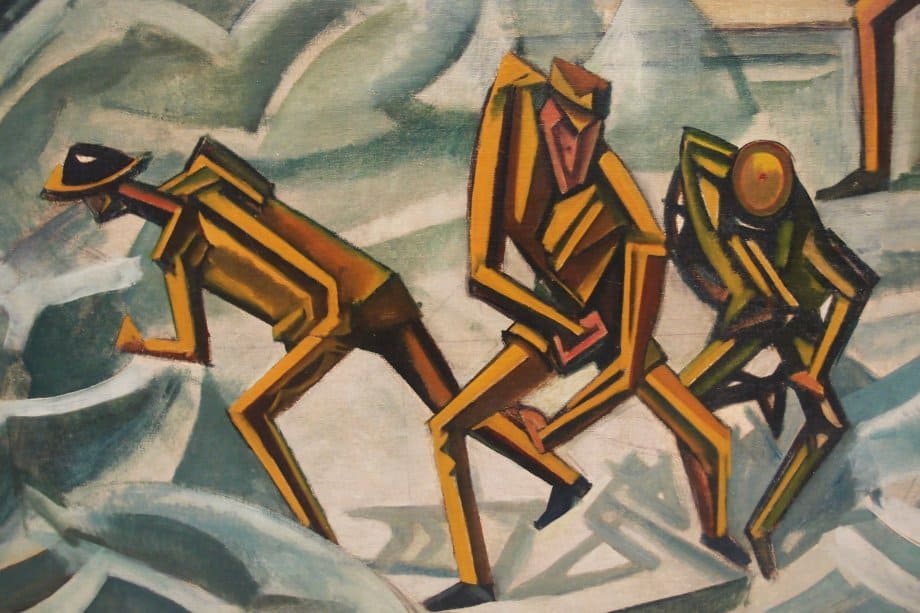-
The Exotic Underclass
Sometimes a random link on the internet takes you places you never would have discovered on your own. That’s what happened when I was reading an article by Courtney Martin, the author of “Do It Anyway: The New Generation of Activists.” Courtney was writing about the young people who are attracted to complex problems and social change in other countries but fall into the trap of what she calls the “reductive seduction” of being drawn to problems that are urgent, highly visible and seem readily solvable to our best and brightest. In the middle of the article she linked to an essay by C.Z. Nnaemeka, “The Unexotic Underclass.” The essay…
-
The Woman At The Well
This morning we are going to look at one of the long conversations we find in the book of John. There is the conversation with Nicodemus in chapter 3, the man born blind in chapter 9, and the final conversation on the shore with Peter in chapter 21. Then there’s this one: the woman at the well in chapter 4. All of them are unique but all of them are filled with questions from Jesus and from those with whom he is talking. It’s not parables like Luke or quick encounters like Mark but exchanges with individuals that serve to reveal something about Jesus. They are real people and not…
-
The Virtue of Wealth
We came to our community over 30 years ago. Not long after we arrived, I had the privilege to meet and get to know men and women who had carried public and charitable responsibility in this community for generations – and did so until they died. Sometimes their children took their place and sometimes not. I don’t know if all of these men and women would have described it this way, but to me there was a clear sense of having a call to this place. They were not simply living here but had made a life here. They had wealth and an ingrained sense of caring for others. In…
-
Enemies in the Land
Peace is good. War is bad. Right? Not always. In fact, there are times even now when making peace is simply accommodation and the avoidance of a necessary war. “So then, the Lord left some nations in the land to test the Israelites who had not been through the wars in Canaan. He did this only in order to teach each generation of Israelites about war, especially those who had never been in battle before…They were to be a test for Israel, to find out whether or not the Israelites would obey the commands that the Lord had given their ancestors through Moses…And so the people of Israel settled down…intermarried…
-
Malachi
This is a book about burdens. The burden of Malachi – for that is what the word oracle means. The burden of leadership and the burden of loving Israel in spite of their failures. The time gap between last week’s study of Haggai and this week is not seven days. It is closer to 100 years. The situation in Israel has changed. Not only have the people rebuilt the Temple but there was a time of spiritual recommitment under Ezra and Nehemiah. But, as almost always happened, when the leadership changed the nation changed. The people have become careless and neglectful. While there was once a sense of anticipation for…
-
Rebuilding the Ruins
Earlier this week I was with Peter Greer of Hope International. He was in town to speak to the faculty and board of East Texas Baptist University about the importance of the board’s continuous focus on the mission of the school and the dangers of drifting. But he also talked with them about the role of periodic self-reflection on the part of the board members individually to make sure they were building not only the school but their own inner commitment to the deeper purpose of the school. Peter’s approach was neither preachy or pointed. It was an invitation to stay true both personally and corporately. I had the same…
-
Haggai
We don’t know much about the prophet Haggai other than he wrote during a time of international turmoil or what he calls the shaking of the nations. It was a time when there was instability everywhere. Kings had been deposed. Revolutions had overturned dynasties. Power was being shifted constantly and there were warring factions in every country surrounding Israel. It was not the best of times. But in spite of that, Darius the King of Persia, decreed that a number of Jews could return to their homeland from exile in Bablyon. Not many wanted to go back. In fact, it was probably less than 20,000 who left to return home.…
-
Romans 15:14-33
This is our final lesson from Romans – even though it is not the final chapter. But here Paul is wrapping up perhaps the most important of all his letters. If we look back it is hard to believe what Paul has explored in one letter, isn’t it? Look at the topics he has covered: The sinfulness of all men or what we call today total depravity The nature of the world that has turned the truth of God into a lie Natural Law Righteousness by faith Peace with God The transformation of the mind Christians and government The new life of the Spirit The formation of the universal Gentile…
-
This One is Yours
A few years ago a friend and his wife lost their son to suicide. I attended the service and then wrote a blog that expressed how I felt about their tragedy. Shortly afterwards, my friend asked me to work with him putting together a small conference to help families who have experienced the pain of mental illness. I thought about it for a few days before telling him that this issue was not my “sweet spot,” and it would work best if he found someone for whom it was a passion. We saw each other periodically over the next two years. He repeated his request each time, and I always responded with the same answer. It was just not for me. One night as I was getting into bed, I was startled to hear a voice in my…
-
Romans 15:1-13
Last week we talked about the weaker brother being accepted by those who had worked through some of the issues that new believers were wrestling with and this week the first part of this passage extends that. Clearly, it was an important issue then as it is now. Some people have liberty in areas that others do not. Some people have issues of conscience that others do not and learning to live with those differences and have respect for them is fundamental to everything Paul wants to encourage in the early Church. It was too easy to accentuate the differences and allow them to become divisions – whether it was…




